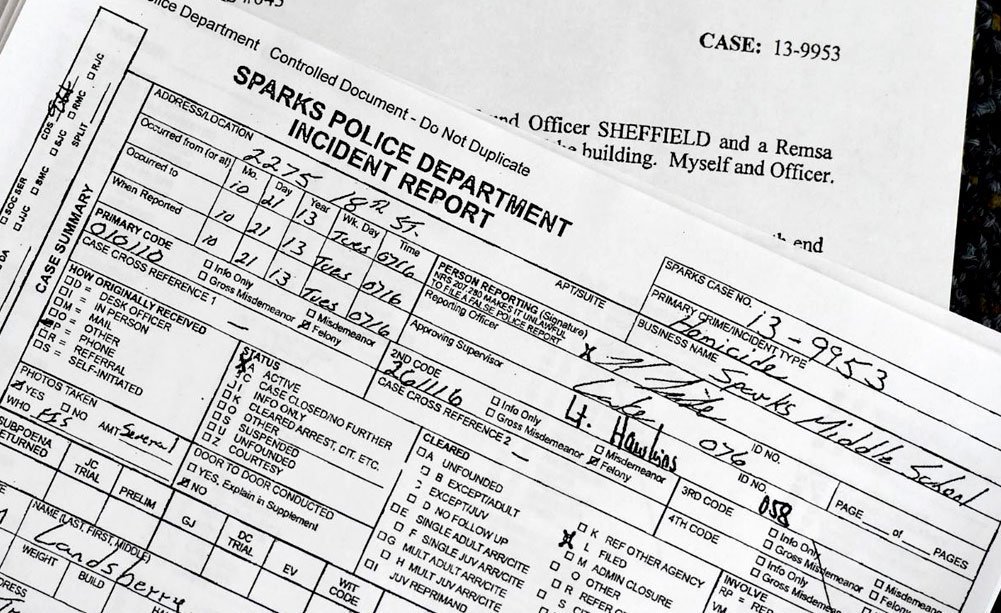Does A Police Report Say Who Was At Fault?
The cacophony of a car crash scene - flashing lights, blaring sirens, and distressed voices - can often dissolve into a blur of confusion for those involved. And amidst this chaos, one document quietly takes shape, destined to play a crucial role in the ensuing discussions around the incident: the police report.
Short Answer:
Q: Does a police report say who was at fault?
A: While a police report may offer significant details about a car accident, it does not definitively state who is at fault.
These reports primarily detail the incident as the reporting officer perceived it.
The final decision on fault typically lies with insurance adjusters who review all evidence, including the police report, but also personal testimonies, laws, and policy stipulations.
What is a Police Report?
In essence, a police report is a comprehensive summary of an accident as seen through the eyes of the responding officer.
It includes a range of details, from the parties involved and the conditions of the vehicles, to the weather, traffic conditions, and even the behavior of the drivers post-accident.
The Anatomy of a Police Report
To understand how a police report works, it's necessary to dissect its contents. While it varies slightly across jurisdictions, most reports will typically include:
Identifying Information: Details about the drivers, passengers, and any witnesses, along with vehicle information.
Narrative Description: A comprehensive account of the accident as relayed to the officer, including the circumstances leading up to the event.
Diagram of the Accident: A visual representation of the accident scene, often showing the vehicles' positions, direction of travel, and points of impact.
Citations or Violations of Law: Any laws that were broken during the incident, such as speeding or DUI. This section may also note whether any tickets were issued at the scene.
Officer's Opinion: Although not a definitive determination of fault, the officer may note their personal opinion on who may be to blame for the accident.
How to Obtain a Police Report
Obtaining a copy of the police report after an accident is critical. To get a copy of a police report, you generally must request it from the law enforcement agency that responded to the scene.
Some jurisdictions allow you to request it online, while others may require you to make the request in person or through the mail.
There may be a small fee involved, and it might take a few days or weeks for the report to become available.
Police Reports and Fault Determination
A common misconception is that a police report is a definitive tool for determining fault. This, however, is not the case.
While the report may contain an officer's observations and occasionally their opinion on who might be at fault, it's important to remember that the police officer was not an eyewitness to the accident. Therefore, the report doesn’t officially designate fault.
This does not undermine the significance of a police report. In many cases, the details encapsulated in these reports can help insurance companies and courts to form a more holistic picture of the incident.
Impact of Police Reports on Legal Proceedings
In legal proceedings, such as a lawsuit after a car accident, a police report can be an influential piece of evidence.
However, its admissibility in court may vary based on local rules.
Even if it's not admissible as evidence, the report can still provide valuable information to an attorney preparing for a case.
Misconceptions About Police Reports
One prevalent misconception about police reports is that they are always accurate.
However, errors do occur, such as misinterpretations of statements or misidentification of traffic laws.
It's crucial to thoroughly review your report and, if necessary, take steps to amend any inaccuracies.
The Role of Insurance Companies
When the police report stops short, insurance companies step in.
It's the adjuster's job to gather all available evidence - which includes, but isn't limited to, the police report.
They also take into account personal testimonies, the applicable laws, and the stipulations of the policies in question. The final verdict on fault, in most cases, lies in their hands.
FAQ Section
Q: If the police report doesn’t determine fault, why is it important?
A: While a police report does not determine fault, it is an essential document that provides a neutral third-party perspective on the accident. It can offer substantial evidence that could influence the fault determination process by insurance companies.
Q: Can I dispute the details recorded in the police report?
A: Yes, it is possible to dispute the details in a police report if you believe they are incorrect. Consult with a lawyer to understand the best way to go about this.
Q: Can a police officer's opinion influence the insurance adjuster's decision?
A: The adjuster considers a police report as a part of the evidence. While the officer's opinion might be influential, the adjuster's decision is based on a comprehensive review of all available evidence.
Q: Is a police report necessary for every car accident?
A: This varies by jurisdiction. In some places, a police report is mandatory for accidents involving injury, death, or significant property damage. However, it's generally a good idea to obtain one for any accident.
Conclusion
Understanding the role of police reports in determining fault in a car accident can save you from unnecessary stress and confusion. Remember, while a police report offers an official account of the incident, it does not serve as a decisive document for fault determination.
This complex process is left in the hands of insurance adjusters who use a myriad of resources, including but not limited to the police report.
Remember to obtain your police report promptly after the accident and review it for any errors.
If you find yourself overwhelmed by the process, don't hesitate to seek legal assistance. They can guide you through these complex steps, making your road to resolution a little less bumpy.











Inside the Investigation: A Deeper Dive into Police Detective Benefits